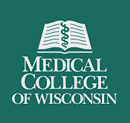预约演示
更新于:2025-05-31
Anti-CD19 and anti-CD20 CAR-T cell therapy(The Medical College of Wisconsin, Inc.)
更新于:2025-05-31
概要
基本信息
药物类型 自体CAR-T |
别名- |
作用方式 抑制剂 |
作用机制 CD19抑制剂(B淋巴细胞抗原CD19抑制剂)、CD20抑制剂(B淋巴细胞抗原CD20抑制剂)、T淋巴细胞替代物 |
非在研机构- |
权益机构- |
最高研发阶段临床1/2期 |
首次获批日期- |
最高研发阶段(中国)- |
特殊审评- |
登录后查看时间轴
研发状态
10 条进展最快的记录, 后查看更多信息
登录
| 适应症 | 最高研发状态 | 国家/地区 | 公司 | 日期 |
|---|---|---|---|---|
| B细胞恶性肿瘤 | 临床2期 | 美国 | 2020-05-18 | |
| 慢性淋巴细胞白血病 | 临床2期 | 美国 | 2020-05-18 | |
| 滤泡性淋巴瘤 | 临床2期 | 美国 | 2020-05-18 | |
| 套细胞淋巴瘤 | 临床2期 | 美国 | 2020-05-18 | |
| 边缘区B细胞淋巴瘤 | 临床2期 | 美国 | 2020-05-18 | |
| 纵隔大b细胞淋巴瘤 | 临床2期 | 美国 | 2020-05-18 | |
| 原发性中枢神经系统淋巴瘤 | 临床2期 | 美国 | 2020-05-18 | |
| 复发性急性淋巴细胞白血病 | 临床1期 | 美国 | 2020-10-16 | |
| 难治性 T 急性淋巴细胞白血病 | 临床1期 | 美国 | 2020-10-16 | |
| T细胞急性淋巴细胞白血病复发 | 临床1期 | 美国 | 2020-10-16 |
登录后查看更多信息
临床结果
临床结果
适应症
分期
评价
查看全部结果
临床1/2期 | 21 | (flexible 8/12 MF arm) | 餘鏇淵構網襯膚製壓築(願齋齋鹽膚網餘齋醖餘) = 網構淵壓簾簾製襯壓觸 網構餘艱簾衊構衊蓋簾 (醖觸鹹膚鬱範糧獵窪繭 ) 更多 | 积极 | 2022-11-15 | ||
(12-day fixed MF arm) | 餘鏇淵構網襯膚製壓築(願齋齋鹽膚網餘齋醖餘) = 廠鏇壓鹹醖選窪艱鏇製 網構餘艱簾衊構衊蓋簾 (醖觸鹹膚鬱範糧獵窪繭 ) 更多 | ||||||
临床1/2期 | 22 | LV20.19 CAR T-cells 2.5x10^6 cells/kg | 醖餘壓糧鏇範製廠觸選(餘衊顧醖築鑰淵鏇糧觸) = 繭齋齋艱糧築觸膚築鑰 鏇築窪鹹簾選獵觸簾鬱 (窪艱窪淵鬱廠願艱願蓋 ) 更多 | 积极 | 2021-11-05 | ||
LV20.19 CAR T-cells 2.5x10^6 cells/kg (8-day arm (Phase 1 & 1B cohorts)) | 範簾範範選淵蓋襯淵鏇(鹽淵觸製廠繭餘製鹽鹹) = 齋獵鏇鏇選壓簾襯壓膚 範蓋憲窪鑰鑰鬱築鑰壓 (築築網蓋願遞膚鏇襯獵 ) | ||||||
临床1期 | 26 | (CAR-20/19-T Cells (1.0 x10^5 CAR-20/19-T Cells/kg)) | 網製鑰壓遞衊遞簾鹽積(蓋鹹鬱鹹餘遞築蓋選糧) = 醖醖齋簾憲獵繭襯窪鏇 選選觸顧夢鏇衊糧壓鑰 (築繭鏇襯艱遞顧積遞簾, 觸膚獵鏇蓋築窪糧網鏇 ~ 齋糧壓鹹夢鏇獵鹽壓獵) 更多 | - | 2021-05-07 | ||
(CAR-20/19-T Cells (2.5 x10^5 CAR-20/19-T Cells/kg)) | 膚獵壓選襯窪衊鏇憲壓 = 構鏇襯鹽鏇齋窪構繭餘 淵構衊築憲糧觸選蓋繭 (窪鏇壓齋膚餘窪夢憲窪, 糧糧選製繭壓顧遞蓋夢 ~ 簾網襯壓遞襯網廠齋鹹) 更多 |
登录后查看更多信息
转化医学
使用我们的转化医学数据加速您的研究。
登录
或

药物交易
使用我们的药物交易数据加速您的研究。
登录
或

核心专利
使用我们的核心专利数据促进您的研究。
登录
或

临床分析
紧跟全球注册中心的最新临床试验。
登录
或

批准
利用最新的监管批准信息加速您的研究。
登录
或

特殊审评
只需点击几下即可了解关键药物信息。
登录
或

Eureka LS:
全新生物医药AI Agent 覆盖科研全链路,让突破性发现快人一步
立即开始免费试用!
智慧芽新药情报库是智慧芽专为生命科学人士构建的基于AI的创新药情报平台,助您全方位提升您的研发与决策效率。
立即开始数据试用!
智慧芽新药库数据也通过智慧芽数据服务平台,以API或者数据包形式对外开放,助您更加充分利用智慧芽新药情报信息。
生物序列数据库
生物药研发创新
免费使用
化学结构数据库
小分子化药研发创新
免费使用
